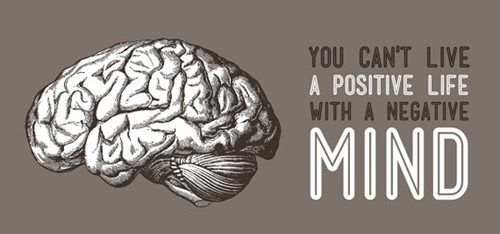Success Advice
4 Ways to Systematically Replace Your Limiting Habits with Empowering Habits

Imagine this scenario…
What if you could systematically break down all of the bad habits that are currently holding you back from achieving your goals?
What if you could then re engineer those habits so that they actually supported your goals?
There are some habits that move us closer towards our goals in life, we’ll call those empowering habits. Then, there are some that move us further away from the achievement of those goals, we’ll call those limiting habits.
Your goal should be to constantly reduce the limiting habits, and maximize the empowering habits.
How do you accomplish this?
Step 1: Identify Your Limiting Habits
The first step is to simply identify which habits are limiting your success.
You identify these limiting habits by first knowing what goals you’re currently trying to accomplish. After you know your goals, ask yourself which actions you perform on a regular basis that are holding you back from achieving that goal.
For instance, say you have a goal of losing weight, but you also have a bad habit of eating unhealthy fast food. That habit is limiting the achievement of your goal.
Step 2: Identify The Cue for Your Limiting Habit
Once you know your limiting habit, the next step is to identify the cue for that bad habit. What is the trigger that sets your bad habit in motion?
Cues can come in many different forms, so it helps to narrow your focus on a few areas:
- Time – What time is it?
- Location – Where are you?
- Emotion – How are you feeling?
- Other People – Who are you with?
- Preceding Action – What did you just do?
The next time you catch yourself performing that limiting habit, take quick second and look at these 5 areas. You’ll eventually start to notice a trend.
Maybe your bad habit shows up every day at 2:00pm. Or maybe every time you’re with you one of your buddies, that bad habit shows up. Or maybe whenever you get upset or sad you fall into your limiting habit.
Pay close enough attention, for a long enough time, and you’ll eventually see the pattern.

Step 3: Identify the Reward for Your Limiting Habit
Once you’ve recognized the pattern and found the cue that’s setting your limiting habit in motion, you want to identify the reward you’re receiving from the habit. What’s the big, positive thing you get from performing that habit?
I know, this may seem a little confusing. I told you that limiting habits are moving you away from your goals, but now I’m saying they provide you with a reward?
Let me explain.
A reward is anything that brings pleasure. But just because something brings pleasure, doesn’t always mean it provides a positive outcome.
For instance, overeating is limiting habit many people deal with. It provides the pleasure of eating delicious food and filling up your body, but then there are also negative consequences, like gaining weight, and destroying your health.
The reward for your limiting habit could be social, like someone telling you “Good Job!” The reward could be something tangible like getting paid. And some rewards occur naturally as a result of habit. For instance, if you walk on the treadmill for 30 minutes, you’ll burn 300 calories.
Do quick “pulse check” on your limiting habit and see what reward it’s providing you with. What’s the good feeling coming from that limiting habit? Why do you keep doing it?
Step 4: Find a New Action
Once you’ve found your cue and your reward, the only step left is to then replace the negative action, with a positive one.
But there’s one caveat, whatever new action you choose, must provide the same reward and be triggered by the same cue.

Putting It All Together
So let’s look at an example that ties everything together.
I had a goal of increasing my health, but I also had a bad habit of snacking on junk food. Every time I caught myself slipping into the bad habit, I began to pay close attention to those five areas (time, location, emotion, other people, preceding action).
I eventually found the pattern. Every time I was hungry and tired, I opted for junk food instead of a healthier alternative.
So my cue was being hungry and tired at mealtime, and my reward was getting something quick and easy to eat.
I replaced that limiting habit of snacking on junk food, with a different, empowering habit, of eating a smaller, healthier snack that would hold me over until I actually cooked something healthy. I used the same cue, and the same reward. I just replaced the action I was performing.
If you want to start breaking down your limiting habits, and building up your empowering habits, it starts with having clear goals in your life. As a gift, you can pick up my free guide on how to set goals that stick.
Did You Know
How Skilled Migrants Are Building Successful Careers After Moving Countries
Behind every successful skilled migrant career is a mix of resilience, strategy, and navigating systems built for locals.

Moving to a new country for work is exciting, but it can also be unnerving. Skilled migrants leave behind familiar systems, networks, and support to pursue better job opportunities and a better future for their families. (more…)
Life
10 Research-Backed Steps to Create Real Change This New Year
This New Year could finally be the one where you break old patterns and create real, lasting change.

Every New Year, we make plans and set goals, but often repeat old patterns. (more…)
Change Your Mindset
The Silent Skill That Makes People Respect You Instantly
What truly earns respect and why most people go about it the wrong way

Everybody craves respect but not everyone earns it. Some people believe that a title, years of experience, or a position of authority automatically entitles them to respect. (more…)
Entrepreneurs
The Essential Skills Every Entrepreneur Needs In 2026
Success in the digital age isn’t about luck. It’s about mastering the skills that separate dreamers from doers.

When I was 22 years old, I started my first side hustle as a ghostwriter. (more…)

































7 Comments